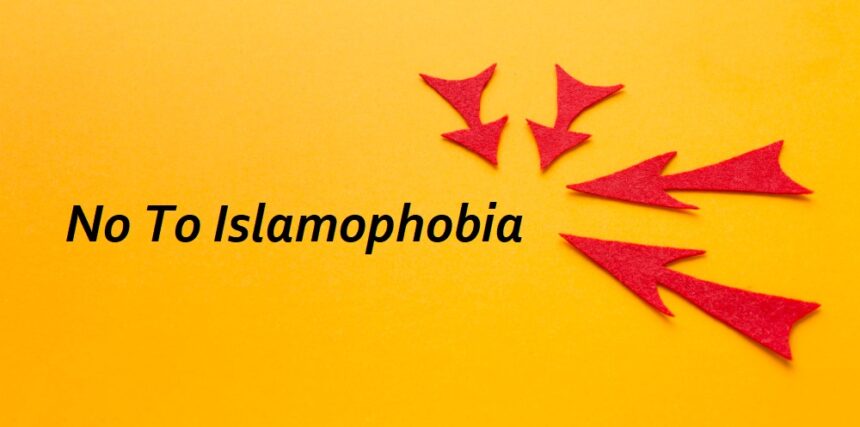Understanding Islamophobia
Irrational fear, hatred, or prejudice toward Islam and Muslims is known as Islamophobia. It can take many different forms, such as institutional prejudices, hate crimes, stereotyping, and discrimination. Misinformation, media representations, and geopolitical conflicts have all contributed to the rise in Islamophobia that has been seen throughout the world. The United Nations declared March 15 to be the International Day to Combat Islamophobia in response to this escalating problem, with the goal of promoting greater understanding, acceptance, and tolerance of Muslims globally.
Why March 15th?
In commemoration of the devastating terrorist assault on two mosques in Christchurch, New Zealand, in 2019, March 15 was selected. This terrible incident served as a sobering reminder of the perils of Islamophobia, as it resulted in the deaths of fifty-one innocent worshipers and the injuries of several others. White nationalist ideas, anti-Muslim feelings, and radical viewpoints that had become accepted in some spheres of society served as the attack’s fuel.
The worldwide community recognizes the pressing need to combat anti-Muslim violence and discrimination while fostering interfaith harmony and tolerance by declaring March 15 as the worldwide Day to Combat Islamophobia.
The Growing Threat of Islamophobia
Islamophobia has been increasing in many nations and can take numerous forms:
1. Violence and Hate Crimes
Due to their religious identity, Muslims have experienced physical attacks, vandalism of mosques, and even homicides. Many incidents, both large and little, happen all around the world, but the Christchurch attack was one of the bloodiest hate crimes against Muslims.
2. Laws and Policies That Discriminate
Policies including travel restrictions, hijab bans, and surveillance systems have been put in place in several nations that unfairly target Muslims. These regulations institutionalize discrimination and perpetuate stereotypes.
3. Stereotyping in the media
The media frequently misrepresents Islam and Muslims by linking them to terrorism and extremism. The public’s mistrust and animosity toward Muslim populations are exacerbated by such misleading representations.
4. Social and Workplace Discrimination
Due to prejudices against their beliefs, Muslims frequently have difficulties in the workplace, housing market, and educational system. Due to their clothing or religious convictions, many people are unfairly singled out or denied chances.
5. Religious Symbol Desecration
Muslim communities have been severely impacted and feel even more marginalized as a result of the Quran being burned, minarets being prohibited, and mosque construction being restricted in certain areas.
The United Nations Resolution to Address Islamophobia
A resolution put forth by Pakistan on behalf of the Organization of Islamic Cooperation (OIC) to designate March 15 as the International Day to Combat Islamophobia was approved by the UNGA on March 15, 2022. 57 OIC members and a number of other countries supported the resolution, demonstrating a worldwide commitment to combating anti-Muslim bigotry.
The UN resolution highlights:
- The necessity of raising global awareness of Islamophobia and its negative effects.
- The defense of human rights and freedom of religion.
- The encouragement of peaceful cohabitation, interfaith harmony, and communication.
International Initiatives to Combat Islamophobia
To counteract Islamophobia, governments, organizations, and communities around the world have been pursuing the following actions:
1. Legislative Measures
- Several nations, including the UK and Canada, have passed resolutions denouncing Islamophobia and pledging to implement laws that uphold the rights of Muslims.
- Some European countries are reexamining laws that disproportionately impact Muslims, such those that forbid the hijab in public places.
2. Educational Programs
- In order to teach pupils about Islam and its nonviolent values, schools and institutions are implementing anti-discrimination curricula.
- Campaigns for public awareness aid in clearing up misunderstandings regarding Muslims and their religion.
3. Interfaith Communication and Community Involvement
- The distances between various religious communities have been lessened because of initiatives that support interfaith cooperation.
- Open-house events are frequently held by mosques and Islamic centers to promote understanding and educate the public.
4. Advocacy and Social Media
- Numerous organizations use social media to elevate Muslim perspectives and refute anti-Muslim tropes.
- In order to combat prejudices and false information, activists and influencers are essential.
The Role of Individuals in Combating Islamophobia
In the fight against Islamophobia, individual action is just as important as institutional and governmental efforts. This is how you can help:
1. Educate Yourself and Others
- Learn about Islam, its principles, and the variety found in Muslim societies.
- When you come across preconceptions, confront them and share factual information.
2. Speak Up Against Discrimination
- Take action, report, and denounce hate speech directed at Muslims if you see it.
- Call out Islamophobic narratives and promote inclusive dialogue.
3. Support Muslim Communities
- Be supportive to your Muslim friends, neighbors, and coworkers.
- Participate in interfaith gatherings to foster understanding and respect for one another.
4. Promote Policies That Are Inclusive
- Encourage laws that uphold religious liberty and encourage tolerance.
- Engage local authorities and leaders to advocate for anti-discrimination policies.
Conclusion: The Importance of March 15
March 15 is International Day to Combat Islamophobia, a reminder of the terrible effects of religious hatred and the necessity of international cooperation in advancing peace and tolerance. The day serves to uphold the global ideal of equality and human dignity in addition to acknowledging the hardships faced by Muslims.
Let’s all pledge to combat ignorance with knowledge, hatred with understanding, and division with unity as we commemorate this significant day. Together, we can build a society that values and celebrates diversity, making Islamophobia and all other types of religious intolerance obsolete.



